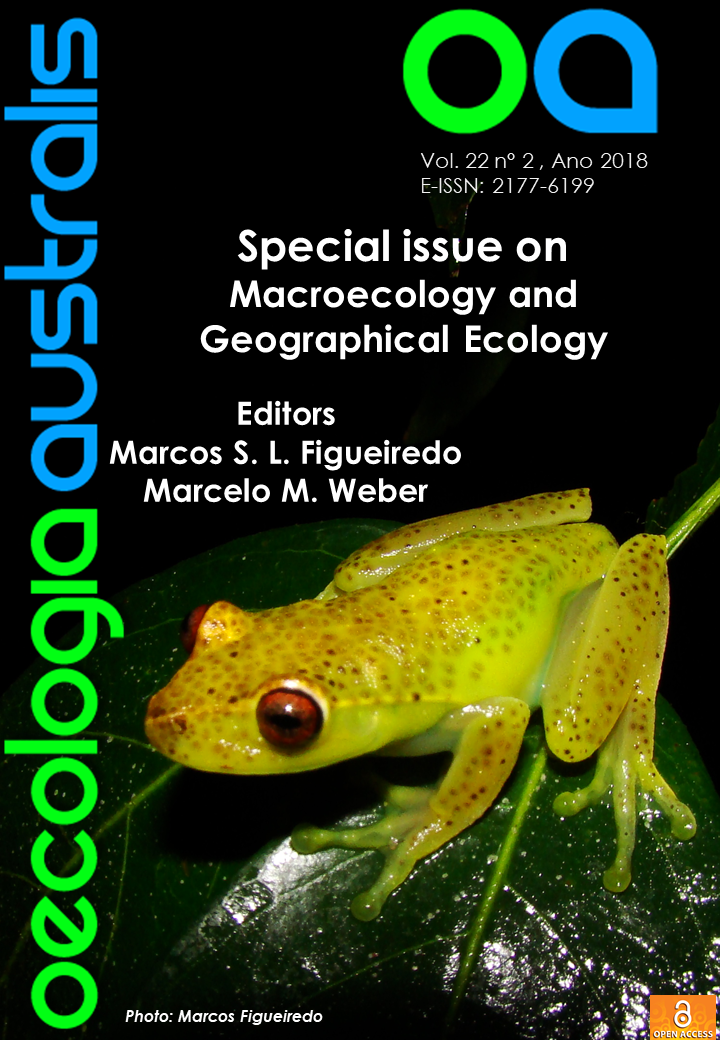FRUGIVORY VS. INSECTIVORY IN MARSUPIALS OF THE ATLANTIC FOREST: TRADE-OFFS IN THE USE OF VERTICAL STRATA
DOI:
https://doi.org/10.4257/oeco.2018.2202.08Palavras-chave:
Didelphidae, diet, independent contrasts, small mammals, vertical stratificationResumo
Space and diet are frequently considered the two most important dimensions of an organism niche, but in tropical forests, these two dimensions are associated, with fruits more accessible in the canopy and upper strata of the forest, and arthropods more abundant in the forest litter. This constitutes a genuine macroecological pattern, potentially common to all tropical forests. We tested the existence of this trade-off between frugivory-insectivory in the vertical strata, and if it results from feeding specializations, using didelphid marsupials as a model group. We compared nine species, representing different lineages, which differ in diet and use of the forest strata, using phylogenetically independent contrasts. We classified species according to their use of the vertical strata into four categories based on the literature (terrestrial-semiaquatic, terrestrial-understory, underestory-subcanopy-canopy, and canopy only). Diet was analyzed by the proportion of nutrients (carbohydrates, fibers, proteins and lipids) in a cafeteria food preference experiment: more frugivorous diets have higher carbohydrate and fiber content, whereas more carnivorous and insectivorous diets have higher protein and lipid content. Along the phylogeny, increases in use of the vertical strata were significantly associated with increases in carbohydrate and fiber contents, and reductions in lipid content. Levels of protein content also reduced with increasing use of the vertical strata, but this association was not significant. The macroecological pattern of increasing frugivory with use of the upper strata is supported by the results for didelphid marsupials, which also indicate specialization is a mechanism involved. The contribution of didelphid marsupials to the ecosystem process of frugivory and seed dispersal is performed by a subset of species, despite being broadly described as omnivorous. Future studies should evaluate this macroecological pattern in more specialized taxonomic groups that vary in the use of the vertical strata, and if specialization is the general mechanism involved.


